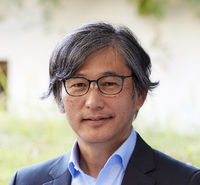Noriyuki Inoue, Ph.D. specializes in educational psychology and action research methodology. At Waseda University, he teaches courses in educational psychology, educational system development, and educational research methods. His recent research focuses on teacher agency, action research, lesson study, teacher development, and teacher decision-making — exploring what it takes to teach inquiry-based lessons effectively and promote students’ social-emotional learning. He also examines educational epistemology through a comparative lens.
Dr. Inoue serves on the editorial board of the Japan Association of Research on Educator Transformation (JARET) and on the editorial advisory board of the International Journal for Transformative Research (IJTR). He has frequently served as a consultant and advisor to schools and educational organizations around the world.
His journal articles have appeared in Teaching and Teacher Education, International Journal of Lesson and Learning Studies, and Teacher Development, among other venues. In the United States, he has published two books with Peter Lang Publishing (New York, NY): Mirrors of the Mind: An Introduction to Mindful Ways of Thinking in Education and Beyond Actions: Psychology of Action Research for Mindful Educational Improvement.
Dr. Inoue began his career in Japan as a mathematics teacher, where he developed a strong interest in human cognition and learning. During these years, his initial focus on mathematics education evolved into a broader exploration of human cognition and development. In 1991, he received a Fulbright Scholarship to study in the United States and earned an M.Ed. from Harvard University, followed by an M.A. and Ph.D. from Columbia University. He later served as a full-time faculty member at several universities in the U.S., and since 2017, he has been a Professor at Waseda University, where he continues to teach and conduct research. (see YouTube videos).
He welcomes inquiries from international researchers and graduate students interested in collaborating with him. (He accepts graduate theses and dissertations written in English.)


Click to view the Scopus page. The data was downloaded from Scopus API in February 18, 2026, via http://api.elsevier.com and http://www.scopus.com .